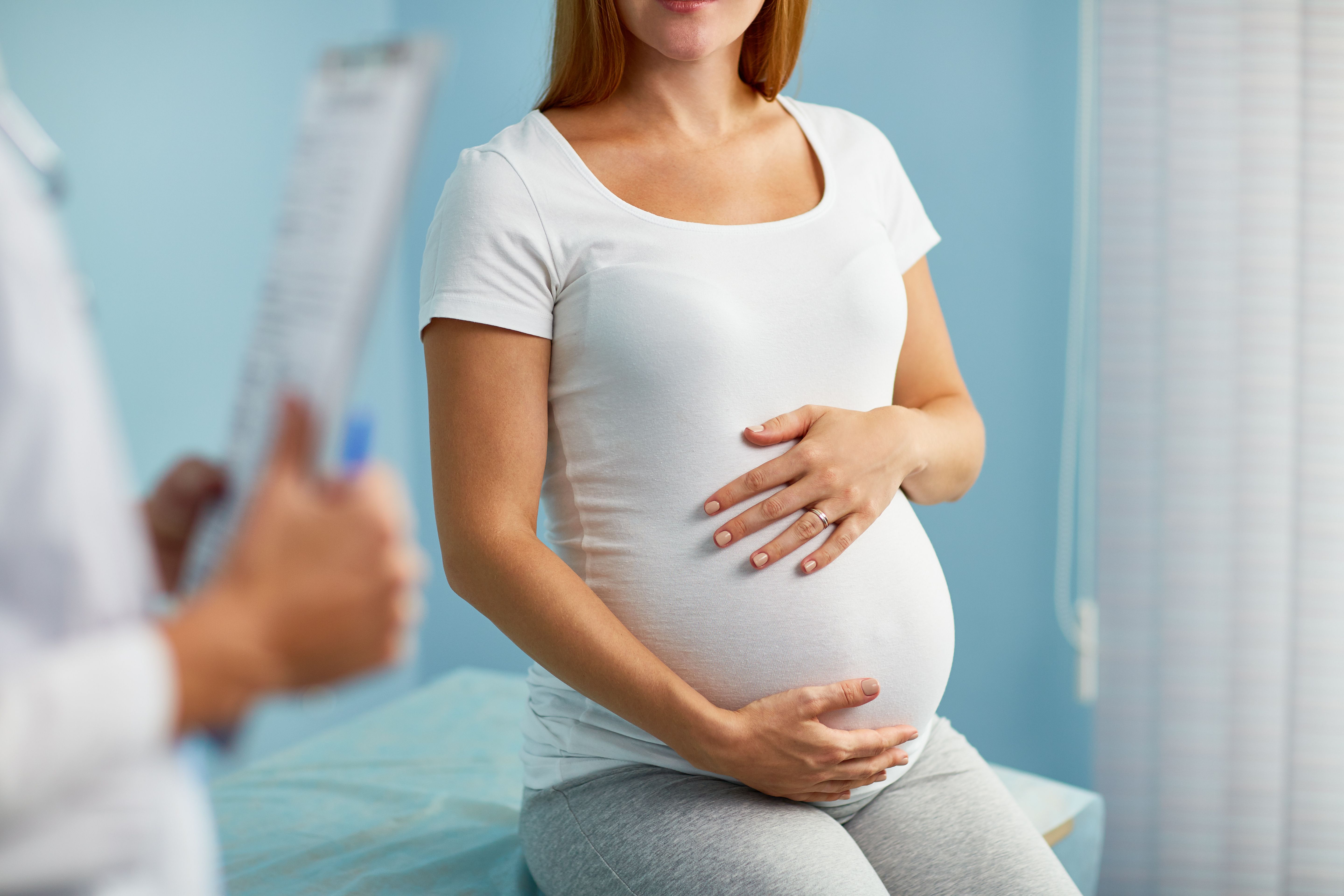Increased Risk of Pre-Eclampsia Reported in Patients with PsA
Previous studies have suggested a connection between rheumatic diseases, which often affect women in their reproductive years, and adverse pregnancy outcomes, such as pre-eclampsia.
Pregnant patients with psoriatic arthritis (PsA), although not pregnant women with axial spondyloarthritis (axSpA), were at an elevated risk of developing pre-eclampsia. In patients with rheumatoid arthritis (RA), risk factors included receiving combination therapy and high disease load during pregnancy, according to a study published in Rheumatic & Musculoskeletal Diseases.1

“RA, AxSpA, and PsA affect women in their reproductive years,” investigators explained. “Previous studies have indicated associations between these disorders and adverse pregnancy outcomes, for example, preterm birth, small for gestational age, and caesarean sections. The potential impact of disease activity and use of medication during pregnancy are causes for concern.”
Singleton pregnancies of patients with rheumatic diseases were identified via linking medical birth registers to Swedish Rheumatology Quality Register (SRQ) and Danish (DANBIO) rheumatology registries. Controls were then matched 1:10 for age, similarity, and birth year. Information on treatment 9 months prior to and during pregnancy, as well as functional status and disease activity during pregnancy, was collected. Only pregnancies of women registered in SRQ or DANIBO for 6 or more months prior to conception were included in the study.
Pregnant patients with RA, PsA, and AxSpA were compared with the control group and risks of pre-eclampsia, defined as new-onset hypertension and multiorgan failure, were estimated both overall and by disease load and antirheumatic treatment, which included corticosteroids, biological disease-modifying antirheumatic drugs (bDMARDs), and conventional synthetic DMARDs (csDMARDs), both as monotherapy and combination therapy. The disease load was analyzed using the Health Assessment Questionnaire ≥1, Disease Activity Score in 28 joints (DAS28-CRP) ≥3.2, and C-reactive protein (CRP) ≥10.
Ultimately, 69 (3.9%) patients with RA (n = 1739), 34 (4.2%) patients with axSpA (n = 819), and 26 (5.3%) patients with PsA (n = 489) experienced pre-eclampsia events. Patients with PsA were more likely to be less educated, smokers, and obese. The PsA cohort had an 85% increased risk of developing pre-eclampsia when compared with controls (adjusted odds ratio [aOR] 1.85 (1.10 to 3.12). The corresponding aOR for axSpA patients was 1.17 (95% CI 0.76 to 1.78). Risk was only slightly increased in patients with RA (1.27; 0.96 to 1.67).
Monotherapy prior to pregnancy was linked to pre-eclampsia in the PsA group (2.72; 1.4 to 5.13). Patients with RA receiving combination therapy both before and during pregnancy had a higher risk of developing pre-eclampsia (1.59; 1.07 to 2.37 and 1.53; 0.97 to 2.39, respectively). Additionally, a high disease load doubled the risk of developing pre-eclampsia in the RA cohort (aOR 1.96; 1.26 to 3.04).
Strengths include the large size of pregnancy cohorts from comprehensive Scandinavian registries, which allowed investigators to eliminate recall bias and adjust for covariates. Multiple data sources were combined to ensure the most accurate treatment information and disease activity was included, which had not been previously possible.
However, the number of pre-eclampsia events were low, thus reducing statistical power. Further, disease activity and treatment information were not available in a substantial proportion of pregnancies. Future studies focusing on a close follow-up of women before and early in pregnancy would be beneficial.
“From a clinical perspective, our findings add to the field of knowledge, by informing clinicians of the underlying risk of pre-eclampsia in these patient populations and by emphasizing the importance of monitoring women with, in particular, RA and PsA regarding this risk,” investigators concluded.
Reference:
Secher AEP, Granath F, Glintborg B, Rom A, Hetland ML, Hellgren K. Risk of pre-eclampsia and impact of disease activity and antirheumatic treatment in women with rheumatoid arthritis, axial spondylarthritis and psoriatic arthritis: a collaborative matched cohort study from Sweden and Denmark. RMD Open. 2022;8(2):e002445. doi:10.1136/rmdopen-2022-002445